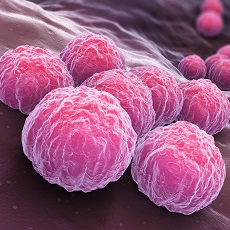What is Chlamydia

Chlamydia is a common sexually transmitted infection (STI). It is caused by bacteria called Chlamydia trachomatis. Anyone can get chlamydia.
What is chlamydia?
Chlamydia is a common sexually transmitted infection (STI). It is caused by bacteria called Chlamydia trachomatis. Anyone can get chlamydia. It often doesn’t cause symptoms, so people may not know they have it. Antibiotics can cure it. But if it’s not treated, chlamydia can cause serious health problems..
How is chlamydia spread?
Who is more likely to get chlamydia?
What are the symptoms of chlamydia?
Chlamydia doesn’t usually cause any symptoms. So you may not realize that you have it. But even if you don’t have symptoms, you can still pass the infection to others.
If you do have symptoms, they may not appear until several weeks after you have sex with someone who has chlamydia.
Symptoms in women include:
- Abnormal vaginal discharge, which may have a strong smell
- A burning sensation when urinating
If the infection spreads, you might get lower abdominal (belly) pain, pain during sex, nausea, and fever.
Symptoms in men include:
- Discharge from your penis
- A burning sensation when urinating (peeing)
- Pain and swelling in one or both testicles (although this is less common)
If the chlamydia infects the rectum (in men or women), it can cause rectal pain, discharge, and bleeding.
What are the treatments for chlamydia?
Antibiotics will cure the infection. You may get a one-time dose of the antibiotics, or you may need to take medicine every day for 7 days. It is important to take all the medicine that your provider prescribed for you. Antibiotics cannot repair any permanent damage that the disease has caused.
To prevent spreading the disease to your partner, you should not have sex until the infection has cleared up. If you got a one-time dose of antibiotics, you should wait 7 days after taking the medicine to have sex again. If you have to take medicine every day for 7 days, you should not have sex again until you have finished taking all of the doses of your medicine.
It is common to get a repeat infection, so you need to get tested again about three months after treatment.
Diagnosis
Doc Doc Phone.com a healthcare provider can treat online. https://docdocphone.com/